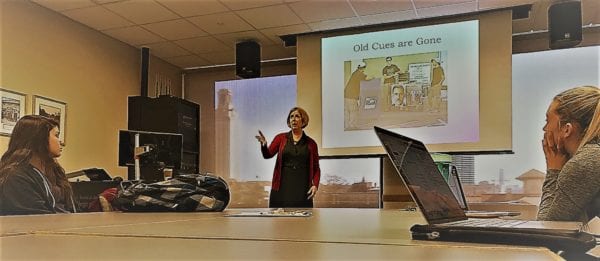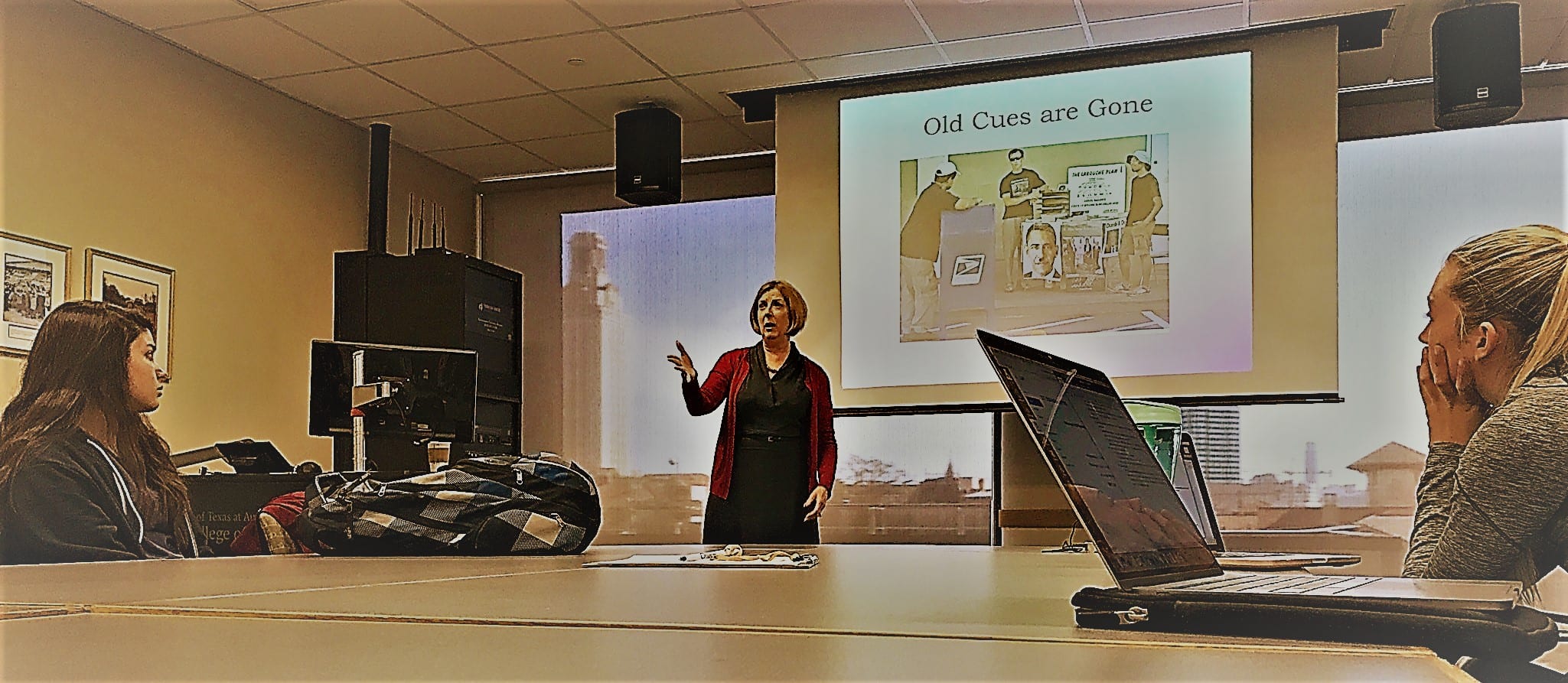
By Brooks Gonzales (public relations junior at UT Austin)
With additional material by Megan Copeland (public relations senior at UT Austin)
AUSTIN, Texas – It is more important than ever for members of the media to stay ethical and informed, according to Mary Bock, associate professor of in the School of Journalism, during a talk at the Moody College of Communication on Feb. 16.
Bock’s talk was a part of the Media Ethics Initiative speaker series that brings in different speakers to discuss and share ideas about ethical choices and values in communication.
Bock gave the talk to inform the public and students that journalism ethics are not just for journalists anymore, as the ability to disseminate information is available to the news media and everyone in between.
“Sharing is so much easier than it used to be,” Bock said. “We are all able to commit acts of journalism, and it’s actually probably a good thing.”
She pointed out, however, that the ability for everyone to become a journalist does not mean that everyone is also ethical.
The news has long been a visual experience, a trend that has intensified through the ability to alter and create images on the internet.
“The cues [in images] that used to tell us that somebody was giving us a hoax, [or was] an extremist, are gone,” Bock said. “People will remember a visual even if you tell them it is false.” Photo: Brooks Gonzales Bock gave three tips for media professionals and citizens alike to live by: seek the truth, be honest and serve the community. In other words, seek trustworthy and transparent sources, provide evidence, and consider the impact of your contributions.
Photo: Brooks Gonzales Bock gave three tips for media professionals and citizens alike to live by: seek the truth, be honest and serve the community. In other words, seek trustworthy and transparent sources, provide evidence, and consider the impact of your contributions.
The talk attracted students and top faculty from the university.
“Journalism ethics is now something that applies to everyone, and it is important to learn the [ethical] rules for participation [in] any form of social media,” said Janelle Davis, a junior majoring in public relations. “We have the power to create a better media environment that can be trusted.”
Also attending the talk was Minette Drumwright, an associate professor in the Stan Richards School of Advertising and Public Relations, who studies ethics in advertising, public relations and business.
“If we’re going to have a culture change [back to ethical journalism], it has got to be because speech professionals, who have so much influence and power, are being responsible and ethical,” Drumwright said.
Before becoming a professor with the Moody College of Communication, Bock worked as a newspaper reporter and radio journalist. Her research is centered on the relationship between words and images in digital media. Bock recently co-authored the book “Visual Communication Theory and Research.”
“Bock’s talk made me completely rethink about how I read news online,” said Callen Hamilton, a junior in public relations. The talk encouraged me to be a lot more cautious with the news I consume and to look into sources in depth before believing them.”



